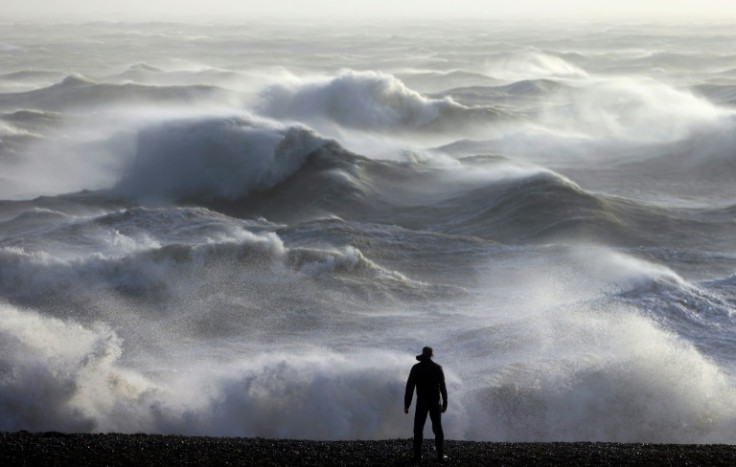Storm Isha Ravages UK, Leaving Thousands Without Power And Two Dead
Scotland, Northern Ireland, north-west England, and Wales were particularly hard-hit, with remote areas warned of potential power outages until Tuesday.

Storm Isha wreaked havoc across the United Kingdom, leaving thousands without power, causing significant damage and claiming the lives of two individuals.
The aftermath of this powerful storm has prompted extensive efforts by authorities and emergency services to restore normalcy to the affected areas.
Storm Isha, the ninth named storm of the season that began in September 2023, unleashed heavy rain and winds of up to 99mph. Regions such as Scotland, Northern Ireland, north-west England and Wales bore the brunt of the storm, with some remote areas facing the possibility of being without power until Tuesday.
The storm, which brought some of the UK's strongest winds in a decade, recorded gusts of 99mph in Northumberland and an astonishing 107mph on the Tay Bridge in Dundee, according to Transport Scotland.
The impact of Storm Isha turned fatal, claiming the lives of two individuals. In Scotland, an 84-year-old man lost his life when the car he was travelling in crashed into a fallen tree in Grangemouth, Falkirk. Meanwhile, in Northern Ireland, another man tragically died after a tree fell on his car in Limavady, County Londonderry.
The extensive power outages caused by Storm Isha affected around 53,000 homes in Northern Ireland and approximately 30,000 properties across England, Wales, and Scotland. Lawrence Slade, from the Energy Networks Association (ENA), revealed that some properties might remain without power until Tuesday, particularly in remote areas.
Coordinating engineer teams proved challenging due to the widespread impact of the storm, necessitating the deployment of helicopters and drones to expedite assistance in affected regions.
Prime Minister Rishi Sunak assured the public that the government was actively collaborating with authorities to restore power to homes. He noted that electricity had already been restored to nearly 300,000 properties.
However, challenges persisted in remote areas, and Lawrence Slade highlighted the need for safety before deploying engineer teams to restore power. The Republic of Ireland also experienced power outages, with approximately 235,000 homes and businesses affected.
"We've got to get engineers out but we can only do that when it is safe when the winds have dropped down sufficiently," he said.
Storm Isha disrupted various modes of transportation, leading to road closures, blocked rail lines, and the suspension of several train services, including ScotRail, Gatwick Express, Great Northern, Southern, Thameslink and East Midlands Railway. Additionally, dozens of schools, primarily in Scotland and Northern Ireland, remained closed on Monday.
The storm's forceful winds and rain caused environmental damage, with notable landmarks like the Dark Hedges in County Antrim, Northern Ireland, suffering damage to trees made famous by the TV series Game of Thrones.
As the UK grapples with the aftermath of Storm Isha, Storm Jocelyn looms on the horizon. Forecasted to bring strong winds and rain to Northern Ireland and parts of Britain, Storm Jocelyn is anticipated to have wind gusts of 55 to 65mph across north-western Scotland.
The Met Office issued multiple weather warnings, including amber warnings for wind covering the entire UK, a rare red warning for specific areas in Scotland and yellow warnings for rain in various regions.
The storm season that gripped the United Kingdom commenced with Agnes, making its presence felt with heavy rain and gusts of 70mph in late September. The subsequent storms, namely Babet, Ciarán, Debi, Elin, Fergus, Gerrit, Henk and Isha, unfolded a series of weather-related challenges, testing the resilience of communities and the efficacy of emergency response measures.
Adding to the complexity of the situation, Storm Jocelyn is poised to arrive as the second named storm in the span of just 36 hours. This rapid succession of storms, while not uncommon, is nevertheless a significant occurrence in the realm of meteorology.
Liz Bentley, the chief executive of the Royal Meteorological Society, commented on the strikingly short time frame between the naming of Isha and Jocelyn, saying that such occurrences, though not unusual in themselves, heighten the challenges faced by meteorological organizations, emergency services and the public alike.
© Copyright IBTimes 2025. All rights reserved.






















